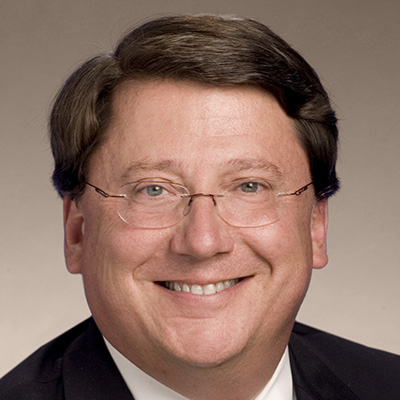Tennessee Senate Majority Leader Mark Norris has yet to say as much, but the West Tennessee Republican could make a run for the governor’s mansion come 2018.

It’s certainly been speculated. The former Shelby County commissioner/attorney/farmer’s got 15 years under his belt in the state Legislature. He’s carried key efforts like the recently signed FOCUS Act – alongside Rep. Ryan Williams (R-Cookeville) – that separates schools like Tennessee Tech from the mighty Tennessee Board of Regents. He’s got the platform, aka, his four E’s – employment, education, enforcement of the law and economic opportunity – which he’s promoted heavily in talks around the state. Most recently, he held a meet-and-greet at Cookeville’s Seven Senses to chat workforce development.
“It’s certainly a compelling opportunity,” was Norris’ official answer when posed the election question by the UCBJ. “I think that decision will have to be made early in 2017.”
That sure seems like a long way to wait. In the meantime, here’s FOUR KEYS from some of the politico’s newly carried initiatives and how they could impact the UC.
-
LEAP can lead the way
Norris created the Labor Education Alignment Program (LEAP) in 2013, he says, because a number of high-tech manufacturers told him they were ready to expand, but often held back for lack of qualified employees. The state allocated $10 million in funding to help close that gap. It also ties in neatly with Drive to 55 initiative, which aims to equip 55 percent of Tennesseans with a degree or certificate by 2025.
LEAP received 27 applications in year one. Less than half, or 12, received grants. Among them, a TCAT-Livingston-headed effort to deliver advanced manufacturing/ industrial maintenance/ mechatronics to high school students via dual-enrollment classes. The effort received $684,000 – money that allows for equipment at Cookeville and White County high schools, and additional trainers at TCAT – and includes numerous public and private sector partners.
Manufacturing is the region’s largest employment sector; there’s more than 200 manufacturing companies in the Highlands (Jackson, Overton, Putnam and White counties) alone.
“We tried to pick the programs that (best) target the skills gap in sectors with the largest workforce deficits – like advanced manufacturing (and) mechatronics,” Norris said. “We’ve done some studies to track what the future holds. You’ve got, first, a whole bunch of folks (age) 55 and over that are about to retire. And then there’s sectors, regardless of the existing workforce, where there’s just a skills gap. I think statewide, there’s 60,000 jobs open – but unfilled – because we don’t have the workforce.”
The state has already allocated another $10 million in LEAP funding for the 2016-17 fiscal year. Norris said that will help “sustain the successful programs,” and hopefully, “create new ones in unserved and underserved areas.”
-
Address the ‘workplace shift’
Cookeville made big splashes in 2014 and 2015, respectively, as Academy Sports + Outdoors and Ficosa North America announced big plans – and new plants – in town. Together, the companies promise 1,600 new jobs.
But are they exactly “new?” That can be debated. Norris said programs like LEAP should help fill the pipeline with fresh workers, too.
“As we recruit new industries, or in some cases, help expand existing ones, oftentimes all we do is move workers from one employer to the other. And that creates a deficit, still,” he said. “If you’re just taking the skilled workers from existing industries, they still need to be replaced. It’s a challenge, but if we can constantly fill the pipeline with productive folks, that’s how we’ll continue to fuel our local economy.”
-
Reach more students – and sooner
More updated numbers were expected, but at last count, LEAP programs have touched 14,000 students so far. It’s a much smaller tally here – a press release issued last year said TCAT Livingston had 119 dually enrolled high school students from five counties and another 23 full-timers enrolled in the new mechatronics program.
But it’s a start.
“Livingston is a great example of how Drive to 55 is playing out in one local community,” Kate Derrick, spokeswoman for the Tennessee Higher Education Commission, said in an email. “Enrollment numbers at the TCAT have grown significantly with…new dual enrollment opportunities; employers in the region are excited to have an increased pipeline of skilled graduates and have committed to providing internships to students.”
Dual-enrollment catches students early – in their junior and/or senior year – Norris said. It also gives non-traditional students a chance to improve their skillsets.
“Those are two important components to filling the pipeline,” he said. “But it requires continual effort and part of that is aligning ourselves with the private sector and making sure we’re providing relevant education. Too often higher education puts forth a curriculum that’s operating out of sync with what the economy demands.”
-
FOCUS Act should help
That misalignment is one reason the FOCUS Act found a foothold; Norris sponsored that bill this year, which Haslam ceremoniously signed in Cookeville in June. It pulls six universities, including Tennessee Tech, Austin Peay, East Tennessee State University, Middle Tennessee State, Tennessee State and the University of Memphis, from the Tennessee Board of Regents’ umbrella. Those schools will now be overseen by local boards, which will appoint the campus president, manage university budgets and set tuition, and oversee other operational tasks. Haslam has also appointed Norris to a FOCUS Act “transitional task force.” Tennessee Tech President Dr. Phil Oldham is also included in that group.
“This gives the six universities more autonomy; we set them free, so to speak, so we could give the TCAT’s and community colleges separate attention,” Norris said. “We need to do more in our Drive to 55 (effort). That’s a tall order. We’re probably somewhere around 37 percent right now, so we’ve got a long way to go in a short period of time.”









